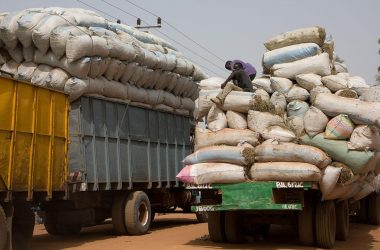
(JollofNews) – The European Union, the International Trade Centre (ITC) and the Government of the Gambia Thursday launched a new initiative to support job creation and entrepreneurship for Gambian youth.
The Gambia Youth Empowerment Project is a four-year project that will benefit from €11 million from the EU Emergency Trust Fund for Africa and will strengthen the long-term competitiveness and viability of the country’s economy.
European Commissioner for International Cooperation and Development, Neven Mimica said: ‘This initiative funded under the European Emergency Trust Fund for addressing root causes of instability and irregular migration in Africa will also give the opportunity to restore hope for members of the diaspora and Gambians who migrated abroad.
‘In the past years, so many young Gambians have fled their country. Today the Gambia needs all of its sons and daughters to rebuild the country. And you need them in the Gambia, not abroad. Pilot initiatives will be targeting the diaspora more specifically by addressing their needs and promoting inclusive entrepreneurship schemes along various value chains with high potential for exports,’ he said.
ITC Executive Director Arancha González said: ‘Today’s launch of the Youth Empowerment Project marks another building block to the construction of the New Gambia. One that will have youth, job creation and trade as its core element.
‘Trade will play a crucial role in achieving this and ITC is looking forward to working with the Gambian government, businesses, trade and investment support institutions to ensure that more jobs and opportunities are created for youth and entrepreneurs – and especially companies run by women.’

The Gambia’s Minister for Trade, Regional Integration and Employment, Isatou Touray, said: ‘The New Gambia dedicates itself to the battle against unemployment and creates the enabling environment for youths to unleash their potentials and together we shall succeed.’
By fostering economic opportunities, the Gambia Youth Empowerment Project will help stem the flow of young people leaving the Gambia using the ‘back-way’ in search of jobs abroad. Irregular migration claims many Gambian lives and stifles the socio-economic development of the country.
Taking a market-driven approach, the Youth Empowerment Project will focus on building specific skills among youth in a number of traditional sectors such as agriculture and tourism. These will continue to provide the bulk of economic development in the Gambia and must be recognized as the main drivers of socio-economic progress and job creation. It will also help diversify the Gambian economy by supporting the strengthening of ‘new’ sectors, including the creative and digital services industries.
As part of the initiative, ITC and the EU will work with local, national and international partners to implement skills-building projects in urban and rural areas across the Gambia. Partners such as trade-support institutions, industry associations and entrepreneurship incubators will play a crucial role in achieving the inclusive and sustainability goals of the Youth Empowerment Project. Particularly important will be to strengthen existing technical and vocational skills programmes to better match the need of business and markets.
Key achievements to be expected
The four-year project will focus on achieving the following:
· Strengthen existing youth development programmes and systems, and ensure that these are more adaptable to shifting market needs;
· Encourage the return of skilled Gambian migrants by supporting the creation of jobs across the country and supporting the re-integration of these into the economy and society;
· Provide support to trade promotion organization and other institutions in the development of accessible and flexible learning models and tools;
· Provide skills-building training and support programmes to young entrepreneurs to improve their competitiveness and performance;
· Promote a shift from low-productivity subsistence work, especially farming, and into more productive activities in modern manufacturing and services;
· Raise awareness about skills training and development for 100,000 youth;
· Ensure that 7,000 youths complete technical or vocational training programme or an apprenticeship;
· Provide entrepreneurship services – such as business advisory support and access to finance – for at least 8,000 youth, and;
· Support and help improve the training programmes for 10 partner institutions.






It’s wonderful to empower The Gambian youth. Make sure education is available for all, and let them have access to credit and training in different skills. Agriculture can also be developed by making it attractive for the youth. It is alarming that there is a high rate of youth unemployment and disenfranchised in The Gambia, and we should take every effort to help them realized their earning potentials and contribute to their community and national economies.
Yes,peace, do not worries about fund distribution for the youths ,l hopes this government will be more responsible, if they fail us like jammeh will hold them accountable, the fund is for all gambian start from banjul to basse which even include the strong hold of APRC district is for all gambian no discrimination fair and balance.
Peace, three sure fire ways of making agriculture attractive to Gambian youth is to first and foremost:
1. Remove the drudgery in Gambian agriculture.
2. Make soft lending accessible to aspiring and existing young Gambian farmers so they may roll out out their fresh ideas with a good dose of confidence and financial security. Munafango, it is called in Manding. Engage the Gambian legislature to create support structures and financing arms in collaboration with local banks, GAWFA, NACUG, AFET and local credit unions. The object would be to solicit and fund BANKABLE medium and large scale enterprises from Gambian agricultural entrepreneurs. These lending arms must not be seen to be in competition with local commercial banks but must be actively empowered to act as stand alone bodies. I may add that local banks could underwrite the expenses of setting up regional and privately owned youth model farms (social entrepreneurship) rather than donating large sums of money to questionable causes.
3. Adopt a private sector led approach/policies in the drive to transform Gambian agriculture. Promulgate the nation’s desire to see model enterprises in agriculture take a foothold within a specific time frame.
Specifically, target key sub sectors in the productive sector; support the establishment of PRIVATE agricultural service agencies for hire; proactively support the agricultural value chain for key products in select regions; get government out of the business of procuring and managing farm inputs for Gambian farmers; give the private sector a chance and lifeline to prove its worth to Gambian agriculture.
The numbers and targets offered under the Gambia Youth Empowerment Project are too generic and neither SMART nor sustainable without a strong private sector role. It is also got the word PROJECT in its name. A bad omen I will add. Let’s get to the meat of it!!
You may have heard the old Gambian adage, Yeff Yi Du Doleh, Halaat Ak Hail La.
In Manding, Ferro Ning Hakilimayaa.
Subsistence agriculture and Mabaalu Makoye La/Dinanu Lene Dimbaleh (Government will help) Agriculture belongs of old. That Donkey has been long dead, the South Africans will say!
Can’t we all look at doing things differently this time around?
@ Andrew= All are good ideas to developed agriculture.
(1) First, we need to have peace and political stability in the country for any meaningful development to emerge and progress. Foreign investment are usually attracted to a stable environment.
(2) Second, we need the best infrastructure to attract investors and support development in the country, including agricultural development. These infrastructures include good medical facilities, roads, water, electricity, and good storage and transportation systems for the farmers. Eliminate the middle men and provide good accessible market for farmers to sell their products at good prices.
(3) Third, agriculture can be developed and modernized by attracting youth to involve in the process, but how?
(A) Build farming centers or what I would call farming villages in every division in the country including houses for the workers and employees with nearby shopping centers. Make sure these farming centers are managed and run by Gambian experts and foreign experts as well.
(B) these centers should be a training for diverse agricultural skills. Youths can be on the job training while they are paid monthly with free food and housing. Give a monthly free bag of rice to the families of the youth enrolled in the training as incentives. These centers can produce many agricultural produce we need in the country and beyond, and it will also prepare the youth to have their own future private farms after completing their training. Youth can be further help to established their businesses by giving them credit and providing continue mentoring.
Funds to sponsor these projects can be generated by eliminating those failed projects in the country and eliminate the continued funding of present projects that have been a nightmare. These funding will also come from donors from other countries and NGOs and some of the income tax funds. Many ways to developed a sustainable agriculture and the country.
Andrew I am not very au fait with the agriculture sector but your contributions have been very concise and educative. I hope someone in government will read your contributions and bring them to life. Keep up the good work, the country needs people like you on this long road to prosperity.
Buba, a long road indeed!
Let’s hope and pray that some well meaning and business like Gambians commit to gleaning the comments and contributions offered in the online media for useful takeaways on the quest to resuscitate Gambian agriculture.
In a modern economy, a policy adviser or thought leader doesn’t have to be homebased or exclusively homegrown! My two cents.
Thanks
Bourne, I may add that the OPEN secrets to Agricultural success in the modern world are:
1. Plant GOOD SEED where, when and how the farmer wants it.
2. Apply FERTILIZER and other INPUTS when, how and where the farmer wants it.
3. Apply water when, where and how the farmer wants it in a COST EFFECTIVE manner.
4. Manage vital operations/cultural practices in a TIMELY and COST EFFECTIVE manner.
No issues with the farmer being ill or man hours in short supply on account of funerals, Ngentay and other distractions at the Bantabaa/Vous!
5. HARVEST, PROCESS AND STORE produce in a SANITARY, SAFE and COST EFFECTIVE manner to ensure and attract decent RETURNS to the investment.
6. SECURE Access to Farm Inputs, Services and Labor in a SECURE and TIMELY manner at reasonable COST!! NO scrounging around for handouts from GOVERNMENT!
The foregoing point to the fact that farming is a FULL TIME preoccupation that CANNOT be undertaken on a part-time basis.
See where I’m going with this!
GOVERNMENT PROJECTS CANNOT DO THIS FOR THE GAMBIA!!
ONLY PRIVATE FUNDING AND INTENSIVE PRIVATE SECTOR PARTICIPATION CAN SEE THIS THROUGH!!
Farming is also as much of an ART as it is a SCIENCE!!